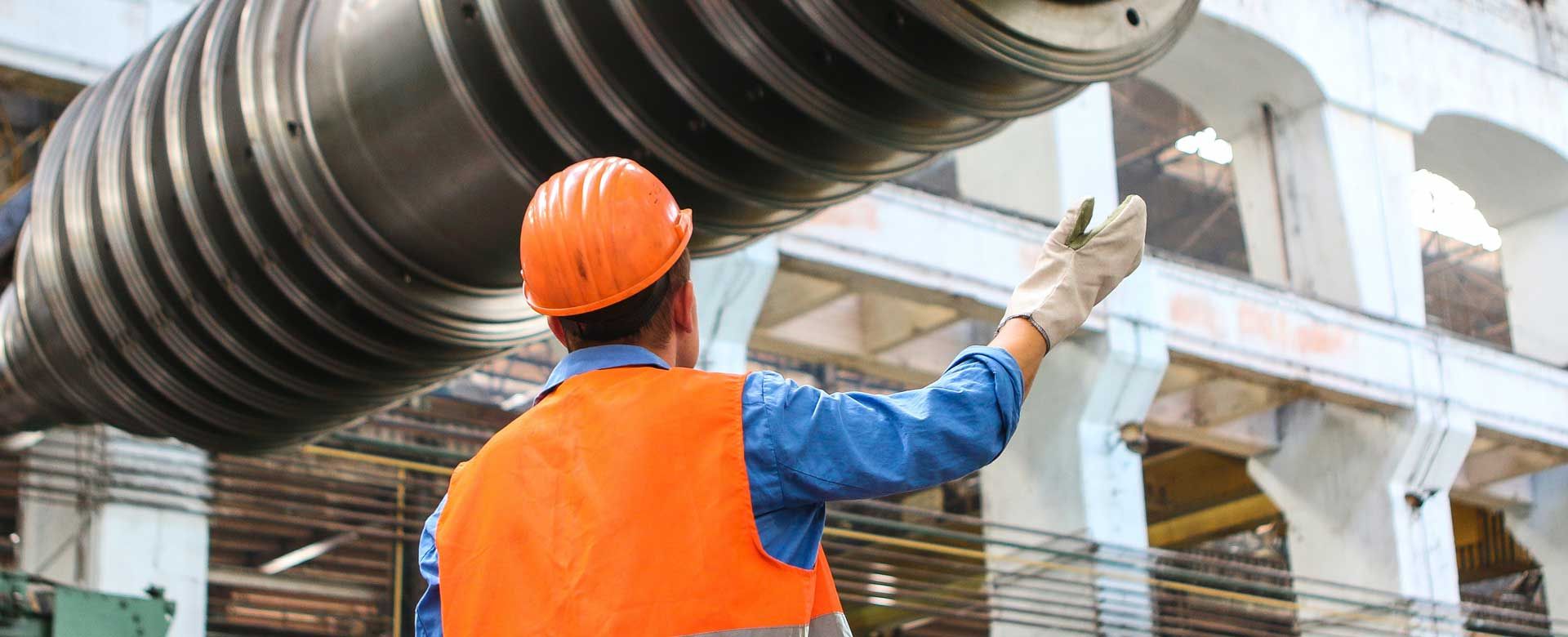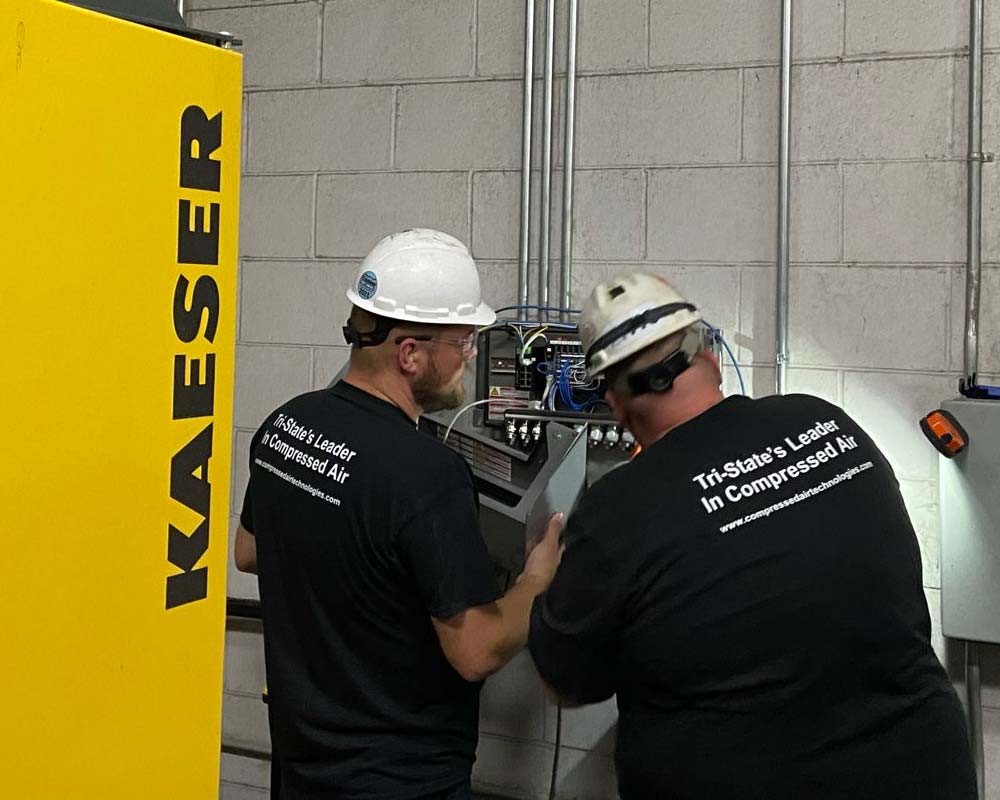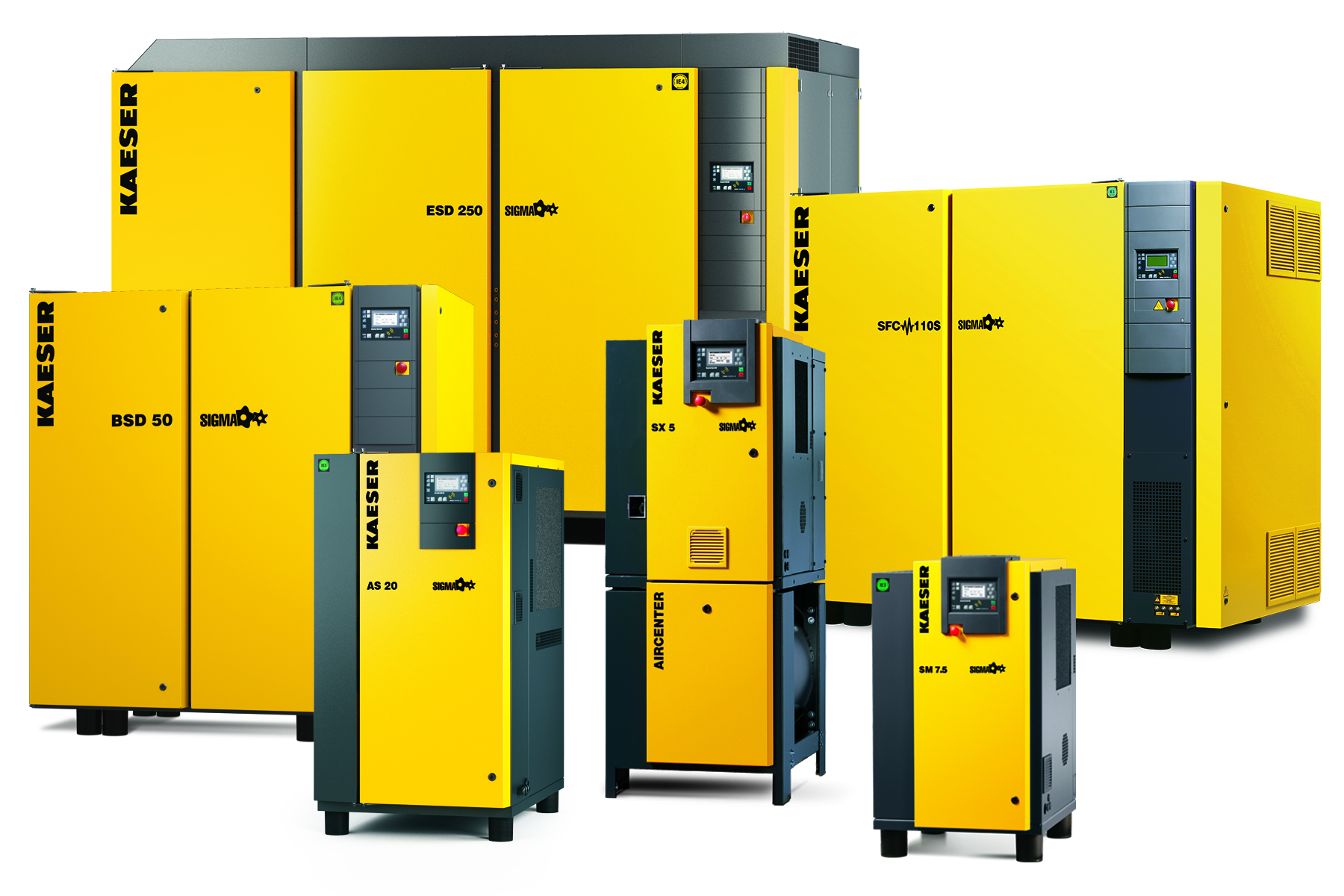Compressed air uses
Compressed air is important to many different industries and greatly impacts business. Industries that use compressed air include food and beverage, medical, pharmaceutical, manufacturing, aerospace, amusement parks, HVAC, construction, road and highway work, breweries, energy sectors, dry cleaning, ski resorts, woodworking, automotive, railways, and many others. Without air, many of these industries couldn’t produce safe or satisfying products!
Air – the fourth utility
The popularity of air compressors is largely due to the flexibility of compressed air. Compressed air is so common that it is often considered the fourth utility right after water, electricity, and natural gas. It can be involved in anything and everything because of such a wide range of uses comes to a need for variety.
Different compressor requirements for every business
Not all companies, even within the same industry, have the same needs when it comes to compressed air. Companies need varying sizes and powers. Each business has varying budgets and legal requirements, too. No matter what the horsepower or budget, Elevated Industrial Solutions specializes in providing what you need while reducing energy costs, and effortlessly integrating into your current system.
Why Kaeser Compressors?
If you’re not familiar with Kaeser, the company is considered the gold standard in compressed air. Kaeser has been engineering solutions since 1919, starting with gears for automobiles. They expanded quickly, creating their first compressor in 1948. Since then, the company has grown and expanded to just about every continent. Today, they’ve innovated add-ons and features, such as the Kaeser Sigma Control 2 which enables you to control your entire compressed air system.
Although they may be more expensive in upfront costs, no doubt you’ll save money over the life of your compressor. Typically, these compressors require less significant maintenance to keep them up and running. They’re more efficient, too. It’s why Kaeser machines are considered to have great ROI (return on investment).
Elevated can help get you the right compressor
Elevated Industrial Solutions has supplied Michigan and Ohio with compressed air systems for more than 34 years. Our sales engineers, technicians, and installation experts are certified. We’ll never sell you more power than you need and will always look for ways to save you money on energy. Our goal is to make you more efficient and effective.
Plus, we can provide industrial supplies, coating and finishing equipment, and precision tools for your industrial, construction, or manufacturing company.







